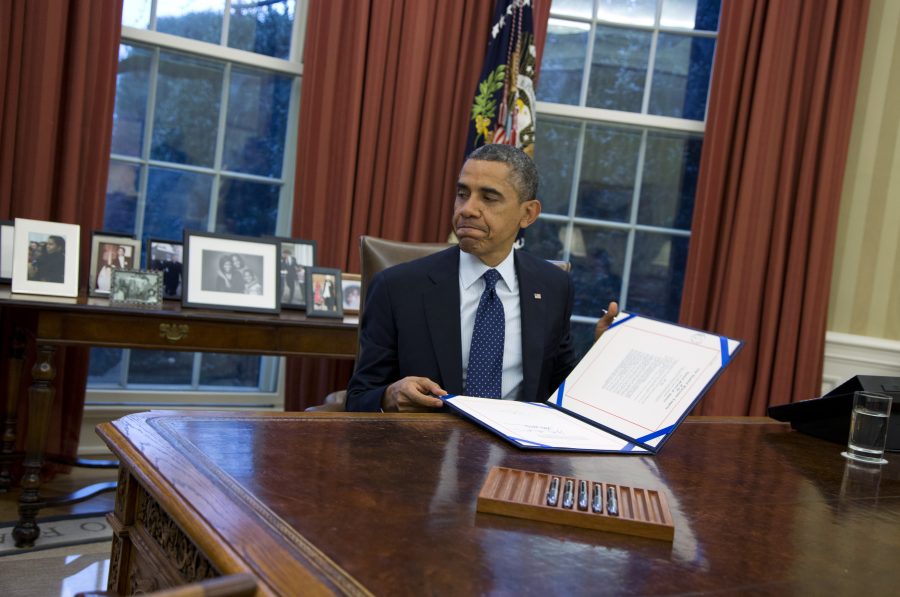Last Tuesday, the Obama administration proposed a new set of rules that would crack down on the use of “dark money,” or anonymously donated money, in political elections.
Though the proposed rules, released by the Treasury Department and the Internal Revenue Service, do not apply specifically to Texas, there are more than a few Texas political organizations that would find themselves affected. Texans for Fiscal Responsibility, a project of the infamous tea-party activist Michael Quinn Sullivan’s Empower Texans group, may be the most prominent.
The proposed reforms are timely: In 2006, tax-exempt groups across the country spent only $5.2 million on political activities. By 2012, that number had risen to $300 million, suggesting that the checks of big-time donors had found their way to politically-oriented nonprofits.
Critics of the new regulations are already claiming that the proposed rules would do little, if anything, to stop anonymous corporate money from finding its way to political campaigns. But that doesn’t mean the administration is foolish for trying.
In a piece published last Tuesday in Politico, Byron Tau and Lauren French wrote that the new rules “are unlikely to stem the tide of anonymous donations that have flooded into politics since the 2010 Citizens United Supreme Court decision.” That decision, made by a 5-4 vote, ruled that the government could not limit the ability of corporations to donate to political campaigns.
501(c)4s, the organizations targeted by the new rules, are currently defined as groups whose primary purpose is “social welfare.” However, the current tax code fails to clearly define what constitutes “social welfare.”
“Many election lawyers and their clients use an unofficial rule of thumb: If a tax-exempt group spends less than 50 percent of its budget on political activity, then its primary purpose is not winning campaigns,” explained a New York Times article on the topic.
Under the draft of the new regulations, “social welfare” would exclude “candidate-related political activity.” What counts as candidate-related political activity? Under the draft, communications that expressly advocate for a candidate, campaign contributions and voter registration drives, among other activities, would all count.
There’s a justified concern from conservative groups that the new rules are meant to limit the influence of growing grassroots organizations.
“I think it’s Obama’s revenge against people who have been participating in the process on the other side from him,” Charles Spies, the founder of the Pro-Mitt Romney Restore our Future Super PAC, told Politico about the new regulations.
It’s hard to forget the recent IRS scandal, in which the agency was found to have been excessively auditing tea-party organizations that had applied for nonprofit status.
As concerning as the potential implications for free speech is that the new rules would apply only to 501(c)4 entities, meaning that donors looking to obfuscate their actions can simply elect to check a different box on their tax form and ignore the new rules entirely. For example, organizations may easily escape the new regulations by converting into a Limited Liability Corporation, or LLC, which would not be subject to the new rules.
It should be noted that the problem isn’t that corporations are donating to political campaigns, but rather that they are doing it anonymously through nonprofit organizations, making it impossible to track who is funding whose campaign.
These regulations then, though well-intentioned and on point, are problematic in that they regulate nonprofit entities, not the action itself of corporations anonymously donating large sums of money. But unless the Supreme Court reverses Citizens United, these new rules may be the best we can do to limit the influence of corporate America in the ballot box.





















